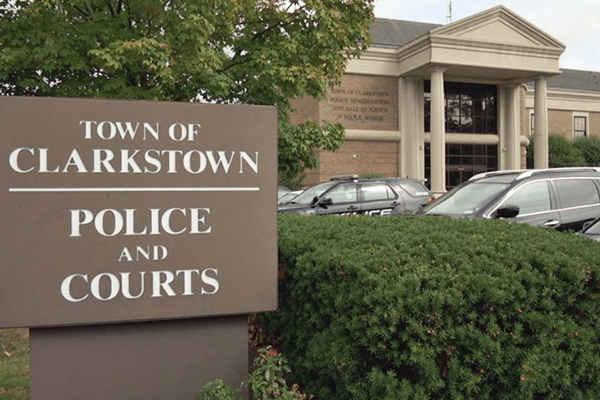|
RCBJ-Audible (Listen For Free)
|
Town Will Hold March 8 Hearing On Proposal To Ban Short-Term Rentals
By Tina Traster
The Town of Clarkstown homeowner charged with illegally renting his house on the short-term rental site Airbnb pleaded not guilty in town court last week.
Meir Shuvalsky of 3 Turnberry Court is accused of violating two sections of the town’s short-term rental code by failing to obtain a rental permit and for advertising the property without a rental permit number. There is also a broader third charge for generally failing to comply with the town’s short-term rental law.
The New City homeowner was charged violating rules on short-term rentals following a violent incident that took place in late January while his house was rented out through Airbnb.
Shuvalsky told Court Justice Howard Gerber he planned to hire an attorney.
Supervisor George Hoehmann said the town is seeking $15,000 in fines from the homeowner.
According to the code, first-time penalties range from $3,500 to $5,000; second-time penalties from $7,000 to $10,000; third offenses from $10,000 to $15,000.
Gerber set a hearing date for March 22.
On March 8 at 7 pm, Clarkstown’s town board will hold a public hearing on a proposed ban on short-term rentals.
Currently, a homeowner who wants to use his home for short-term rentals must obtain a permit from the town, and a permit must be renewed every two years. The cost to apply for a permit is $250. Short-term stays cannot exceed 30 days at a time, or a maximum of 90 days in a calendar year. A homeowners must carry a policy of up to $1 million in homeowners’ insurance. It is against the rules to hold “gatherings” between 10 pm and 7 am. Also, absentee landlords must have a “resident agent,” or someone local to manage the property.
If the proposed law is passed, short-term rentals will be banned.
The proposed law is designed to “prevent unregulated tourist or transient-oriented uses within all permitted and pre-existing nonconforming single-family, two-family, and multifamily dwellings and in residential districts and traditional residential neighborhoods.”
The new law bans short-term rentals – those of 29 days or less – in all residential zones in the town. The ban applies to all single-family, two-family, and multiple-family residential dwellings townwide.
However, the ban as written only prohibits short-term rentals when there is an exchange “for monetary compensation or other valuable consideration.” The law does not prohibit short-term rentals where no money or other valuable consideration changes hands.
There are two exceptions in the new code: one is to allow short-term rentals to house sellers after they close on the sale of their property, and for those residential properties that have permits under the old law. However those permits will not be renewed when they expire. It is unclear if the Building Department will continue to issue new permits while the town considers passing this law.
The law does not apply to properly permitted hotels, motels, and bed-and-breakfasts.
Fines for first offenses are between $3,500 and $5,000. Second offenses committed with a period of five years have fines between $7,000 and $10,000. And conviction of a third offense within five years carries fines between $10,000 and $15,000. Each week of a continuing violation is considered a separate offense for the purpose of fines.
The law also provides for violators to receive warnings from the Building Inspector in lieu of a violation, at the Building Inspector’s discretion.
And renters, considered “unregulated tourists” or “transient-oriented users” shall be considered accessories to the offense, and will be subject to the same fines as homeowners.
Clarkstown’s ban on short-term rentals largely mirrors code changes made in 2021 in the Town of Stony Point which also banned short-term rentals. Stony Point violators are entitled to a warning before being prosecuted. And fines in Stony Point start at $350 for a first offense, $350-$700 for a second offense, and $700-$1000 for a third offense committed within 5-years.















